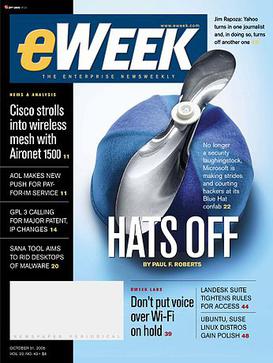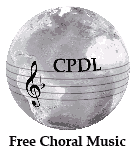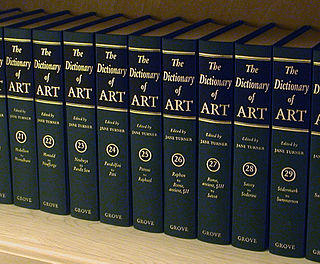
An encyclopedia or encyclopaedia is a reference work or compendium providing summaries of knowledge, either general or special, in a particular field or discipline. Encyclopedias are divided into articles or entries that are arranged alphabetically by article name or by thematic categories, or else are hyperlinked and searchable. Encyclopedia entries are longer and more detailed than those in most dictionaries. Generally speaking, encyclopedia articles focus on factual information concerning the subject named in the article's title; this is unlike dictionary entries, which focus on linguistic information about words, such as their etymology, meaning, pronunciation, use, and grammatical forms.
In computing, WYSIWYG, an acronym for what you see is what you get, refers to software that allows content to be edited in a form that resembles its appearance when printed or displayed as a finished product, such as a printed document, web page, or slide presentation. WYSIWYG implies a user interface that allows the user to view something very similar to the result while the document is being created. In general, WYSIWYG implies the ability to directly manipulate the layout of a document without having to type or remember names of layout commands.

Imperial College London (Imperial) is a public research university in London, England. Its history began with Queen Victoria's husband, Prince Albert, who envisioned a cultural area in South Kensington that included museums, colleges, and the Royal Albert Hall. In 1907, these colleges – the Royal College of Science, the Royal School of Mines, and the City and Guilds of London Institute – merged to form the Imperial College of Science and Technology.
TechTV was a 24-hour cable and satellite channel based in San Francisco featuring news and shows about computers, technology, and the Internet. In 2004, it merged with the G4 gaming channel which ultimately dissolved TechTV programming. At the height of its six-year run, TechTV was broadcast in 70 countries, reached 43 million households, and claimed 1.9 million unique visitors monthly to its website. A focus on personality-driven product reviews and technical support made it a cultural hub for technology information worldwide, still existing today online through its former hosts' webcasts, most notably the TWiT Network.
This is a Glossary of Internet Terminology; words pertaining to Internet Technology, a subset of Computer Science.

Ziff Davis, Inc. is an American digital media and internet company. Founded in 1927 by William Bernard Ziff Sr. and Bernard George Davis, the company primarily owns technology- and health-oriented media websites, online shopping-related services, internet connectivity services, gaming and entertainment brands, and cybersecurity and martech tools. Previously, the company was predominantly a publisher of hobbyist magazines.

ZDNET is a business technology news website owned and operated by Ziff Davis. The brand was founded on April 1, 1991, as a general interest technology portal from Ziff Davis and evolved into an enterprise IT-focused online publication. After being under the ownership of CNET Networks (2000–2008), CBS Corporation (2008–2020), and Red Ventures (2020–2024), ZDNET was reacquired by Ziff Davis in August 2024. CNET was included in the acquisition as well.
Application software is any computer program that is intended for end-user use – not operating, administering or programming the computer. An application is any program that can be categorized as application software. Common types of applications include word processor, media player and accounting software.

Open educational resources (OER) are teaching, learning, and research materials intentionally created and licensed to be free for the end user to own, share, and in most cases, modify. The term "OER" describes publicly accessible materials and resources for any user to use, re-mix, improve, and redistribute under some licenses. These are designed to reduce accessibility barriers by implementing best practices in teaching and to be adapted for local unique contexts.
The Internet Encyclopedia of Philosophy (IEP) is a scholarly online encyclopedia with 880 articles about philosophy, philosophers, and related topics. The IEP publishes only peer-reviewed and blind-refereed original papers. Contribution is generally by invitation, and contributors are recognized as leading international specialists within their field.

eWeek, formerly PCWeek, is a technology and business magazine. Previously owned by QuinStreet; Nashville, Tennessee marketing company TechnologyAdvice acquired eWeek in 2020.

Lexico was a dictionary website that provided a collection of English and Spanish dictionaries produced by Oxford University Press (OUP), the publishing house of the University of Oxford. While the dictionary content on Lexico came from OUP, this website was operated by Dictionary.com, whose eponymous website hosts dictionaries by other publishers such as Random House. The website was closed and redirected to Dictionary.com on 26 August 2022.

The Choral Public Domain Library (CPDL), also known as the ChoralWiki, is an online database for choral and vocal music. Its contents primarily include sheet music in the public domain or otherwise freely available for printing and performing.

Grove Art Online is the online edition of The Dictionary of Art, often referred to as the Grove Dictionary of Art, and part of Oxford Art Online, an internet gateway to online art reference publications of Oxford University Press, which also includes the online version of the Benezit Dictionary of Artists. It is a large encyclopedia of art, previously a 34-volume printed encyclopedia first published by Grove in 1996 and reprinted with minor corrections in 1998. A new edition was published in 2003 by Oxford University Press.

Michael Edmund Kolowich is an American new media and internet content entrepreneur and documentary filmmaker. He is chief content officer of OpenExchange Inc. and is founding producer of DigiNovations, a digital multimedia production company in Acton, Massachusetts. He was founder and CEO of KnowledgeVision Systems Incorporated, which merged into OpenExchange in October, 2019. He was a partner at Bain & Company, chief marketing officer for Lotus Development Corporation, founding publisher and columnist for PC/Computing magazine, was founder and president of Ziff-Davis Interactive, served as president of AT&T New Media, was chairman, president and CEO of Individual Incorporated, and co-founded NewsEdge Corporation.

Google Dictionary is an online dictionary service of Google that can be accessed with the "define" operator and other similar phrases in Google Search. It is also available in Google Translate and as a Google Chrome extension. The dictionary content is licensed from Oxford University Press's Oxford Languages. It is available in different languages, such as English, Spanish and French. The service also contains pronunciation audio, Google Translate, a word origin chart, Ngram Viewer, and word games, among other features for the English-language version. Originally available as a standalone service, it was integrated into Google Search, with the separate service discontinued in August 2011.

Musopen is an organization which creates, produces and disseminates Western classical music, via public domain recordings, sheet music and educational resources. It stands with the ChoralWiki and the Wind Repertory Project as among the most prominent online music databases.

Geek.com is a technology news weblog about hardware, mobile computing, technology, movies, TV, video games, comic books, and all manner of geek culture subjects. It was founded in 1996 and was run independently until 2007 when it was sold to Name Media, after which it was sold to Geeknet, and then to its current owner, Ziff Davis.
Stanford Extended ASCII (SEASCII) is a derivation of the 7-bit ASCII character set developed at the Stanford Artificial Intelligence Laboratory (SAIL/SU-AI) in the early 1970s. Not all symbols match ASCII.














